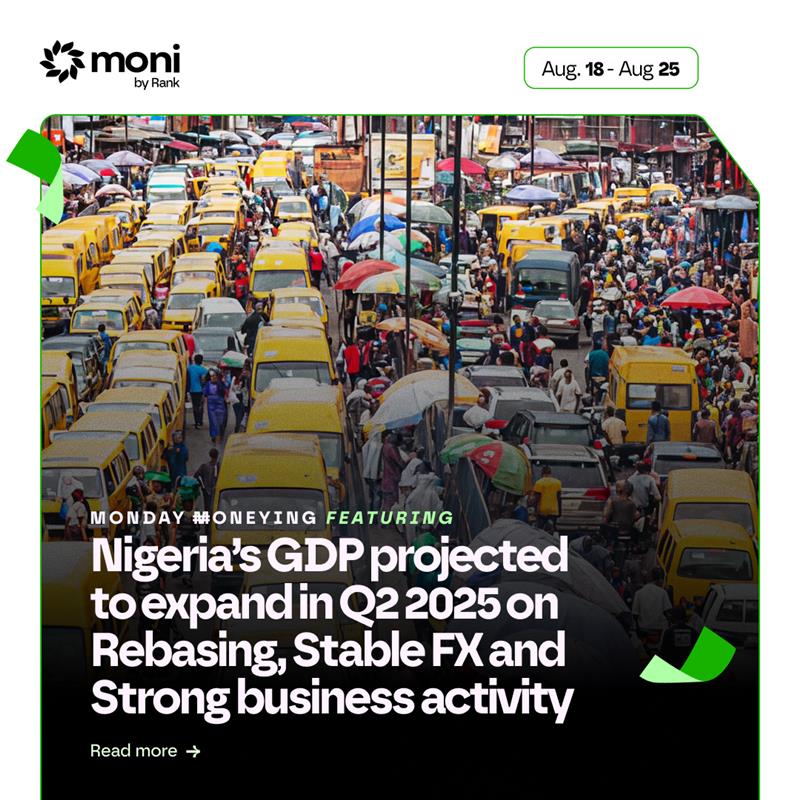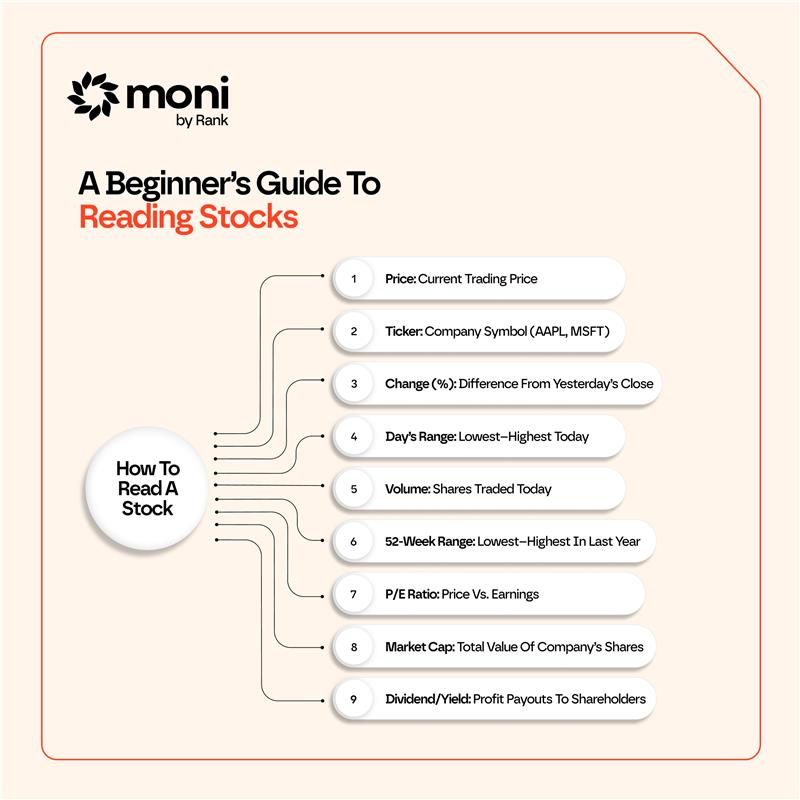From driving over 70km on a Saturday morning to Shapati, a town in the outskirts of Lagos, Nigeria where the nearest bank might be 10 – 20km away from you, to creating a WhatsApp group and sending out Google Forms to our first 10 Mobile Money Agents residing in Shapati, we’ve grown from disbursing N800k ($1,720) to disbursing over N2.5bn ($5m+) in float to Mobile Money Agents across 3 African Countries.
This is the story behind our numbers in 2021.

What’s in a Name?
In July of 2021, when Femi Iromini came up with the idea that we should rebrand from CashTopUp to Moni, I immediately thought I see what you’re doing there boss. A few months later, Facebook rebranded to Meta, Square rebranded to Block and his decision was justified. The rebrand allowed us to think beyond what we were doing and to focus more on how we were doing it.
We realized very quickly that not only were we solving a new problem — Working Capital for Mobile Money Agents — but we were solving it by digitizing an age-old system of Communities which is at the very core of the African Value system.
This name change has allowed us to think beyond providing credit to mobile money agents but also to provide a suite of products and services to suit their lifestyles.
The Moni Pilot
When we launched the first pilot of Moni (then CashTopUp) in Shapati, Lagos, Nigeria in December 2020, both Femi and Dapo quickly recognized the opportunities that were present in offering credit to a market that was on its knees begging for this funding; a market that did well over $12bn in transactions in 2020.
It’s always interesting to hear Femi talk about that first disbursement done in December 2020. They had arrived in Shapati that Saturday morning, had a brief chat with a few Mobile Money Agents in the area — all of whom they were meeting for the very first time that day — created a WhatsApp group, and sent out a basic Google form to collect the personal details of those Agents. The Shapati Community came together and proposed their system of Governance; together, they decided on their repayment terms. They proposed a time frame for how long they wanted the funds to sit with them and what interest rates they were willing to pay. The next morning, funds were disbursed to them — and just like that, Moni was born.
I can see Femi’s face now as he tells the story. He would call Dapo every other day asking if they hadn’t just thrown money down the drain. They held their breath that week and waited. 1 week later, by around 5 pm, 2 hours before the agreed time, all 10 Agents repaid their loans.
That first repayment was the turning point. Femi and Dapo both saw how a Community of people united by a shared sense of trust could spur each other on to do good.

Since then, we’ve launched the Moni App, disbursed around $5m to Mobile Money Agents across 22 States in Nigeria, and expanded into Benin Republic and Guinea.
What makes Mobile Money Special?
Access to working capital still remains a problem in Africa and this is especially true in the Mobile Money business. Because cash is still king, and over 55% of Nigerians still remain unbanked or underbanked, Mobile Money transactions will continue to grow for the foreseeable future and mobile money Agents will play a huge role in bringing more and more people into regulated financial services. To achieve this, they will continue to need longer lines of credit to cater to the growing demand for mobile money services.
I really think credit in the Mobile Money space is interesting. Unlike lending to Businesses where their ability to repay is dependent on how quickly they’re able to ship stock, mobile money Agents will always have their working capital either as cash or in their mobile money wallets drastically reducing the likelihood of default.
Till now, nearly all of our growth has been organic — through mobile money Agents already in our network referring other Agents they know and trust — and trust me, there’s a lot of them!
Shared Prosperity and High Repayment Rates
Last Wednesday, I visited a Government Agency. As I walked in, I initially began to converse with the woman attending to me in English. In between every sentence I made, she’d interject with the phrase ehn? as she tried to make sense of my request. She seemed a little hostile towards me at first. She then spoke a little bit of Yoruba to her colleague before continuing to attend to me. I responded to her next question to me in Yorùbá and instantly, I saw her face relax and her frown melt into a smile. She said “Ọ tí ẹ gbó Yorùbá? (so you speak Yorùbá)”. In that moment, I recognized how powerful communities are in Africa — that sense that we are connected by something.
Look at the number of associations that exist around us — Vulcanisers have an association (they go as far as setting the price for every single vulcanizer on a street), Danfo bus drivers have an association. Market women have an association. Members of these associations even come together to do Àjọ (financial contributions) and trust each other to make the agreed monthly contributions.
Communities are the building block of African culture and they’re at the heart of our day-to-day interactions with each other; have you seen the array of aṣọ ẹbi colors selected by different sides of the families at a single Nigerian wedding?
We looked around us and recognized that Communities were probably more powerful than government institutions. Africans respect Communities and crave for the respect of the communities they are a part of — think of how people jostle for the title of Chairman, Secretary, Treasurer, etc of the Communities they are a part of. It was only natural to take a model that already works at scale and to apply that to what we were trying to build at Moni.
With the lessons learned from observing how Communities operate in Africa, we’ve been able to achieve sustainable growth by replicating our Community Finance (CoFi) model. With CoFi, we’ve developed an innovative approach to ensuring high repayment rates at scale. Anyone in the credit business, especially in Nigeria knows that the most difficult part of the business is collections. By ensuring that our Communities are self-insuring and self-governing, we’re able to maintain some of the highest repayment rates in the credit business.
Everyone in a Cluster recognizes that they’re responsible for each other. Each Agent is aware that their actions are directly tied to the prosperity of the Cluster — If I do not repay my loan, it has a spiral effect across my Community, other Agents in my Community will be unable to take a new loan, their Businesses may have to be on hold which means that they may struggle to meet payroll, which means that they may not have enough revenue that month to cater to the needs of their families.
The thought of letting down your Community, your tribe, your people, as we’ve seen, is sufficient motivation for 99% of our Agents to continue to repay their loans on time.
Shared prosperity for us means that we only earn when our Agents earn and our interest rates are a testament to that. While there are other platforms that provide float to mobile money Agents, the float is inaccessible to the Agents either because the requirements are steep or the interest rates are too high. As a team, we remind ourselves every day that we’re only in Business if Agents on our platform stay in Business and that affects everything around the terms of the credit we offer.
Moni Support

I’ve received calls from Agents at 5am in the morning, at 11pm at night, and at all sorts of hours in-between that. For a long time, before we expanded the size of the team, I was stuck with my laptop and would take it with me everywhere I went— including lunch with friends.
There always seemed to be an Agent or a Cluster Head who needed something fixed, and usually, those things needed to be fixed immediately. In the mobile money Business, time is money, literally. For every minute an Agent is unable to access float, there’s a direct hit on their revenue.
We’ve been able to build a team that’s available to respond and resolve issues faced by Agents on our platform in rapid time ensuring that Agents continue to gain access to the float they need to continue their Businesses in under 5 minutes.
We have a team of dedicated Community Managers who are on call to respond to technical and non-technical complaints. While some issues are straightforward to solve, like a User experiencing issues with having their BVN verified, some issues are not that straightforward. We’ve had incidents of burglary and theft experienced by Agents on our platform.
This is why we decided early on not only to have a support team but to have Community Managers who add that extra human touch. Our Agents are no strangers to receiving calls from our CMs on their birthdays, or if there has been a bereavement in the family. When possible, we make sure to send out a gift as our own way of saying we see you and we hear you. In fact, we had a Moni Baby in October, 2021 — one of our CHs specifically nicknamed his daughter that.
User Stories and Feedback
While my role has evolved a lot from our earliest days, I always make sure to get on the phone with Agents and Cluster Heads every week to get direct feedback on the impact Moni is having on their business, what we can improve on and any pending issues they may be experiencing.
Every now and then, I’d meet up with Agents and Cluster Heads on our platform in person to listen and have them express themselves fully in a way that cannot be done virtually. We take a lot of those lessons and use them in educating our Communities through all the channels we have.
While being on-call can be exhausting, what keeps us going is seeing the direct impact the float we provide is having on our Users. We’ve many stories to tell from the field. Recently, we had a sit down with our Community in Kwara State. One of our Agents shared with us how he had nearly given up on life, how he had lost his family and was in a bad place. His closest friends referred him to a Community on Moni and he began to access the Moni Float. He was able to grow from accessing N100k($200) per week to accessing over N500k ($1,000) per week in float. His life has changed dramatically since then.
We’ve had Communities go out of their way to print Moni branded T-shirts and banners for themselves. Not only as a show of thanks for accessing Moni Float, but also as a way to foster a deeper sense of belonging within their Community.

Sidebar: for brand consistency, we shouldn’t encourage this but it’s such a beautiful thing to witness that we allow it to happen.
Community Townhalls
Once a month, we bring all our Cluster Heads together on a call for a Monthly Townhall. On this call, we layout updates that are coming to the Community and allow them to provide us with direct feedback and what they feel would work for their needs or would not work. A lot of those conversations shape how our Product and Engineering teams approach building for our users.
Moni in YC

We’ve had to contain ourselves for some time now and we’ve kept this news under wraps till a number of media outlets broke the news yesterday before us (Side-eyeing 😒 Journalists). We got into YC! We’re part of the Winter 2022 batch and that means a lot to us!
Y Combinator (YC) is the world’s #1 startup accelerator.
Y Combinator has funded companies like Paystack, Flutterwave, 54Gene, Airbnb, Stripe, Reddit, and Twitch . Twice a year, Y Combinator selects the most promising startups from around the world to participate in its three-month program and funds these startups. The acceptance rate to YC is about 1.5% (even lower than Harvard), so we feel truly honored and lucky to be part of this program!

It has been a long road to get here and it feels incredibly humbling to see that the sacrifices we’ve made are being recognized and rewarded on a global scale.
Women on Moni
I can’t bring this to a close without a special mention of the Women on Moni.
I feel lucky and blessed every day that I’m able to do meaningful work that directly impacts the lives of thousands of people on Moni — directly and indirectly through our Agent network.
Our very first Cluster Head, Eunice contributed a lot in helping to shape what the Moni product is today from the early days of Shapati. A lot of the ideas she gave us at the time remain at the heart of what we’re building at Moni.
In 2021, we paid special care to bringing more women into the Moni network and we’ve seen some of that translate into higher numbers of women on our platform. We disbursed over N875m ($2m+) in float to women on Moni across Africa enabling many of them to increase their revenues by up to 60%.
Over 40% of the Agents on our platform are women and in 2022, the goal is to bring that number as close as possible to a 1:1.
Thank you for 2021
We recognize that none of this growth will be possible without the Agents in our Communities, the 23 Moni People, and counting that we’ve hired across 9 Cities in 4 countries, the financial backing of families, friends, and investors who have helped us along the way and the help of all our advisors.
And now, For 2022 🎊
In 2022 and beyond, we’re taking our system of community governance and democratizing access to credit across Sub-saharan Africa. As always, we will arrive at work every morning thinking of how we can continue to bring shared prosperity to most of the 2.5million Mobile money agents in Africa.
Here’s to More Moni in 2022!



